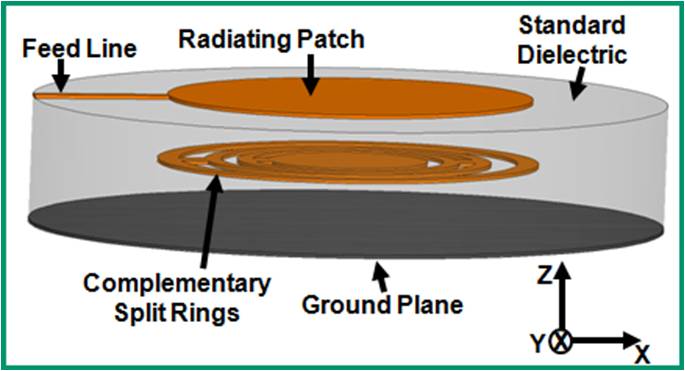
Latest News
3/01/2011
All five papers have been accepted for presentation at the IEEE AP-S International Symposium and URSI Radio Science Meeting to be held July 3-8, 2011 .
1/11/2011
Visited MIT Lincoln Laboratory, excellent place with very smart people and cool projects
1/03/2011
I am in Atlanta for the NSF CMMI Research and Innovation Conference.
12/18/2010
The paper "Waveguide Filter Design Using Optimized Pixelated Inserts" has been submitted for publication in the IEEE Microwave and Wireless Components Letters.
12/13/2010
The paper "A Reconfigurable Microstrip Leaky-wave Antenna with a Broadly Steerable Beam" has been accepted for publication in the journal: IEEE Transactions on Antennas and Propagation .
11/29/2010
11/29/2010
Passed his comprehensive exam.
11/17/2010
Officially a US citizen
11/12/2010
I was awarded a student participation grant for the 2011 NSF CMMI Research and Innovation Conference
08/09/2010
Preparing for the AIAA conference that will be held in Texas, (September 2010).
07/14/2010
I won third place at the IEEE Antennas and Propagation best student paper competition, held in Toronto, Canada.
07/11/2010
I am in Toronto, Canada, for the IEEE APS/URSI international Symposium.
06/28/2010
The paper entitle " A Self-Tuning Electromagnetic Shutter" has been accepted for publication in the journal: IEEE Transactions on Antennas and Propagation.
02/10/2010
The paper "In Situ Optimization of Metamaterial-Inspired Loop Antennas" has been accepted for publication in the journal: IEEE Antennas and Wireless Propagation Letters.
01/05/2010
?????????????.
more
Tunable Cavity Resonators:
The objective of this project is to design a resonator with the capability to automatically alter its resonant characteristics in response to changes in its environment without altering the resonators' physical dimensions or degrading its Q.
A system of tuning wires is inserted into the resonator and attached to the inner surface of one or more walls through computer-controlled switches.
By opening and closing the switches, the fields within the resonator are altered, and thus the resonant frequency can be changed.
The measurement setup and measurement results of the ability of the tunable cavity to retune itself for various perturbations are shown below. More information can be found by contacting me or reading our paper:
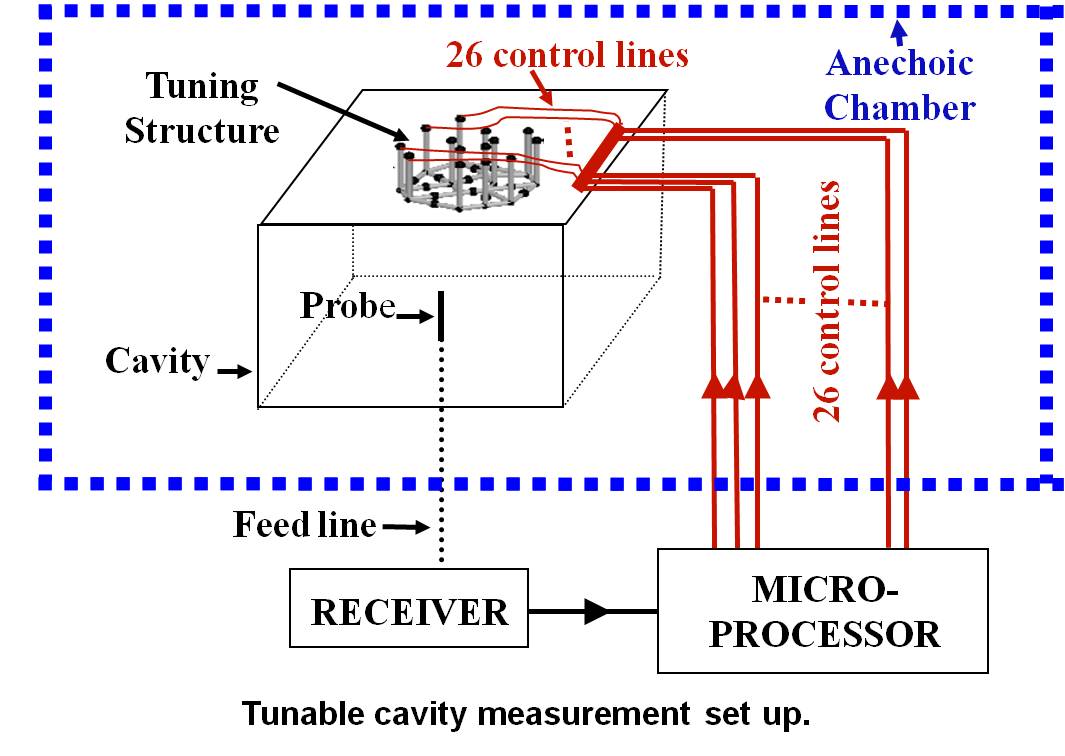
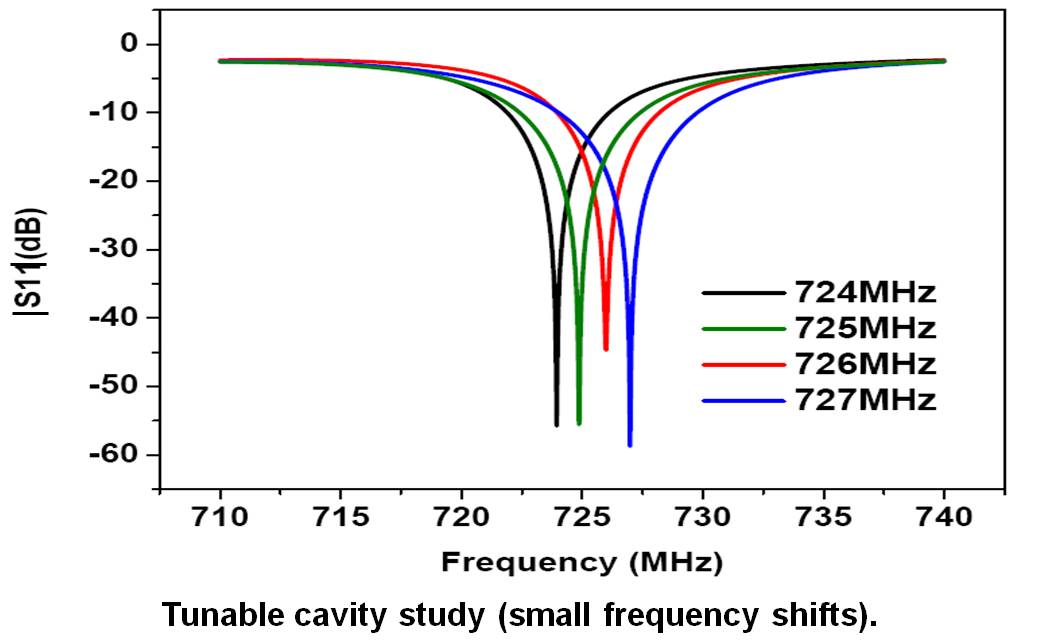
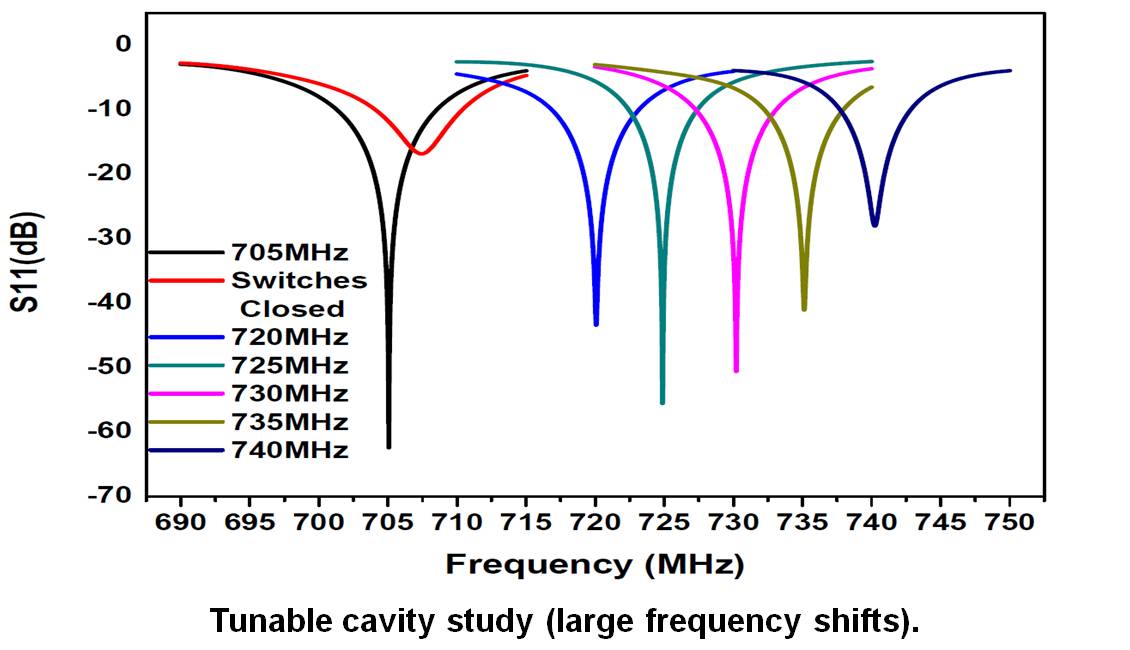
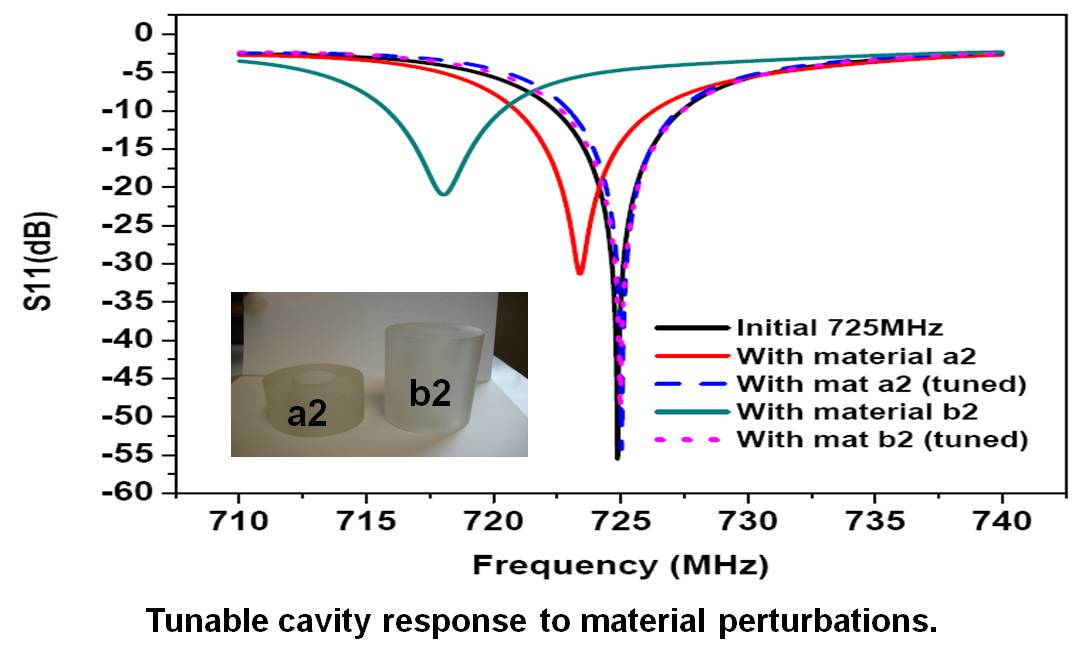
Back to the project page




